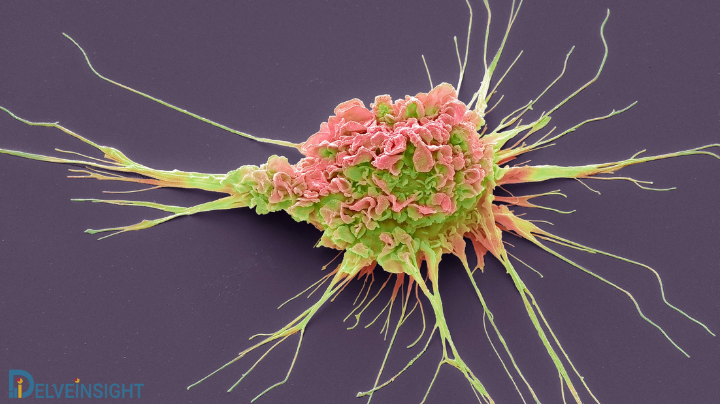Understanding NK Cells and Their Role in Immunity

Natural Killer (NK) cells are a critical component of the innate immune system. These lymphocytes are part of the body’s first line of defense against infections and tumors. Unlike other immune cells, NK cells do not require prior activation or antigen presentation to detect and eliminate abnormal cells, such as virus-infected or tumor cells. Their ability to respond rapidly to threats has positioned them as promising agents in cancer immunotherapy, particularly in treating cancers like Acute Myeloid Leukemia (AML) and Multiple Myeloma.
Mechanism of Action of NK-cells
NK cells target and destroy malignant cells through a combination of cytotoxicity and cytokine release. They can recognize cancerous or infected cells by detecting changes in surface markers, such as MHC class I molecules, which are often downregulated in tumor cells. NK cells induce apoptosis (programmed cell death) in these abnormal cells via the release of cytotoxic molecules like perforin and granzymes. Additionally, they secrete cytokines that further stimulate immune responses, enhancing the body’s defense mechanisms.
NK Cell Therapy: Target Patient Pool
NK Cell Therapy is being explored as a potential treatment for a variety of cancers, including Acute Myeloid Leukemia (AML), Multiple Myeloma, and solid tumors. Target patient populations are those with hematologic malignancies who are resistant to traditional therapies or have relapsed. Moreover, NK cell immunotherapies are being designed to be particularly beneficial for individuals who may not respond well to conventional immune checkpoint inhibitors or other immunotherapies.
Promising NK Cell Therapies in Clinical Development
Several NK cell therapies, including CAR-NK cell therapy, are currently in clinical trials. CAR-NK cell therapy combines NK cells with chimeric antigen receptors (CAR) to enhance their specificity and potency against tumors. Trials have demonstrated promising results, especially in hematologic cancers like AML and Multiple Myeloma. As clinical trials progress, the potential of NK cell therapies to provide long-term remissions and improved survival rates is becoming increasingly evident.
NK Cell Therapy: Challenges and Future Outlook
While the potential of NK cell immunotherapies is undeniable, challenges remain, such as the difficulty in expanding NK cells for large-scale clinical use and ensuring their persistence within the body. Moreover, targeting specific tumor cells without affecting healthy tissues is a critical concern. However, advancements in CAR-NK cell therapy, combined with innovations in gene editing, may overcome these challenges, paving the way for personalized and more effective cancer treatments. The future of NK cell therapy is promising, with increasing investments and research expected to bring these therapies closer to routine clinical use.
Conclusion:
The development of NK cell therapy represents an exciting frontier in cancer immunotherapy. With promising clinical outcomes in treating cancers like Acute Myeloid Leukemia and Multiple Myeloma, NK cells hold great promise in revolutionizing cancer treatment. As research progresses, NK cell immunotherapies may offer new hope for patients with challenging cancers, positioning them as a cornerstone of future cancer immunotherapy regimens.
Latest Blogs Offered By DelveInsight:
-
Pfizer’s ABRYSVO Outpaces GSK’s AREXVY with Expanded FDA Approval – But Can It Sustain the Momentum?
-
5 Promising Exosome-based Therapies Paving the Way for Personalized Medicine
-
7 Key Technologies Pioneering Cybersecurity in the Healthcare Sector
-
7 Key Technologies Pioneering Cybersecurity in the Healthcare Sector
-
Pfizer’s ABRYSVO Outpaces GSK’s AREXVY with Expanded FDA Approval – But Can It Sustain the Momentum?
-
CAR-T Cells vs. CAR-Exosome Agents: Exploring the Future of Cancer Immunotherapy
Latest Reports
Acute Heart Failure Market | Acute On Chronic Liver Failure Aclf Market | Acute Respiratory Distress Syndrome Market | Adult Myopia Market | Advanced Cancer Pain Management Market | Anorectal Malformation Market | Arthralgia Market | Becker Muscular Dystrophy Market | Bipolar Depression Market | Charcot Marie Tooth Disease Market | Checkpoint Inhibitor Refractory Cancer Market | Chronic Pulmonary Infection Market | Clbp Market | Condyloma Market | Ctcl Market | Cutaneous Lupus Market | Cystinosis Market | Cystinuria Market | Diffuse Intrinsic Pontine Glioma Dipg Market | Diffuse Large B-cell Lymphoma Market | Digestive System Fistula Market | Diverticulitis Market | Dlbcl Market | Eosinophilic Gastroenteritis Market | Epilepsy Market | Erectile Dysfunction Devices Market | Erythema Market | Erythromelalgia Market | Esophageal Squamous Carcinoma Market





